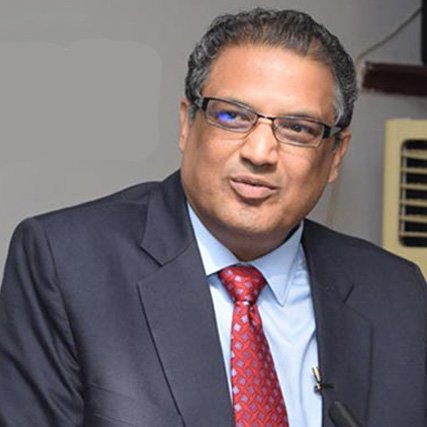Sitting on the seaside edge in the Japanese city of Oaki, I am thinking that when natural disasters strike a country like Japan a messenger of peace they strike; humans have put aside their mutual enmities and the wars of nations, but in our country blood is still being shed because of hostilities, internal fights, and wars. The Afghan Taliban, having adopted a stance of evil in return for kindness, are continuously causing loss of human lives. The blood that was recently shed in Lahore has terrorized and stunned society. The incidents that occurred in Lahore whether the unjust killing of the young man Ahmad Javed, the police encounter with Tiffi Butt, or the bloody march of TehreekeLabbaik remind me of London of the past. In the past, the stench of blood was everywhere in London, just as today’s Lahore is or our entire region is; once London was like that too. In every lane and neighborhood of London there used to be fights; people were fond of watching street fights; knives, daggers, and sticks were in common use; every neighborhood had its own goons; day after day people’s blood was spilled; people considered crime an achievement. It went so far that even plays in the theater were successful if they showed scenes of bloodshed. Gang wars were common, murder for hire was a custom, there was rule by thugs. But London changed today carrying a knife in London is such a serious crime that the police arrest you immediately; possessing weapons is, well, almost impossible only terrorists or saboteurs commit that crime. There, news of a person being killed does not come for months; in Britain, if someone falls under a train it becomes a headline, whereas in Pakistan that news is published on the inside pages in a single column. Japan saw the devastation of the atomic bomb, endured a tsunami and the explosion of a nuclear plant, experienced earthquakes and storms. It took part in wars, but today’s Japan is strongly opposed to wars and nuclear weapons worldwide. There was once oppression and violence in Japan, but in the last seventyfive years Japan has brought forth the compassionate humanity within itself. If Britain adopted the philosophy of live and let live, there is respect for human life there today; if Japan adopted this thinking, then here even the animals live in peace and comfort. If the same conduct comes to Pakistan and Lahore too, there will be peace.
The young man killed in Lahore, Ahmad Javed, was my neighbor. I have a longstanding connection with his father, Adil Rasheed, and used to visit their home frequently. Adil Rasheed is the scion of a welloff Acharraraayan family; his grandfather Mian Rasheed had a personal relationship with Maulana Mawdudi and Mian Tufail Muhammad. Maulana Mawdudi mostly led Friday prayers in Mian Rasheed’s mosque, after which he would converse with Mian Rasheed for a while and then chat with Mian Rasheed’s son and Adil Rasheed’s father. He used to be frank with Maulana Mawdudi and, taking advantage of Maulana’s good humor, would tell him jokes. Mian Rasheed and the other leader of JamaateIslami, Mian Tufail Muhammad, were like brothers. Mian Tufail Muhammad introduced me to Mian Rasheed at his home during his Jiyo program and also told that Mian Rasheed had helped him in every difficult time and had lent him money several times. In short, the young man who died unjustly was not only his family’s only son but also the custodian of a historical legacy and political tradition. When I went to condole with Adil Rasheed, seeing his patience in grief I became tearful. The heirs fear that the killer is influential, that he has clout in the government; it should not be that the powerful are saved and the innocent and weak are caught. Revenge arises in society when there is no justice. To stop bloodshed, justice must be effective and transparent. Whether powerful or weak, whoever commits a crime should be punished.
I had two long meetings with Tareef Gulshan Butt, known as Tiffi Butt, the pride of the Kashmiri family of Gawalmandi in Lahore. As a journalist I was curious to see the person whose name echoed throughout Lahore, to meet and see what he was like. Tiffi Butt rarely left the house, but his fear, awe, and authority were such that anyone he sent a message to did not dare refuse. If a political gathering was to be held, a single telephone call from Tiffi would gather hundreds of merchants. Hafiz Khalid, from the founding family of Jamia Ashrafia, is an old friend of mine; through his mediation these two meetings were held at Tiffi Butt’s house. Interestingly, Tiffi Butt’s elder brother Khawaja Azhar Gulshan and I had an acquaintance stretching back years; he was a leader of the merchants. Often our meetings used to be at Nawabzada Nasrullah Khan’s place. Khawaja Azhar’s father Ghulam Hassan Gulshan also took interest in opposition politics. Khawaja Azhar himself is a man of that tradition when Nawaz Sharif’s parrot used to speak in Punjab and especially among the traders no one would stand against him, Khawaja Azhar was then bravely involved in antigovernment merchant politics. Tiffi Butt, however, did not agree with his brother’s politics; he supported nonNawaz politics and at times supported General Musharraf, though he had old ties with the Sharif family and was not against them. The account of the two meetings was somewhat like this: two friends and I arrived at Tiffi Butt’s house; the first thing we noticed were the guards through whom we passed to enter; there were guards on the roof and in the side rooms as well. Inside, Tiffi Butt was sitting alone in a room; a loaded pistol lay next to him. After exchanging news, curiosity stirred and I asked, “People say you do encroachments; what is your business?” Tiffi Butt was neither surprised nor offended by my question; he replied, “My business is that if two brothers fight over a building or land and the powerful brother does not give the weak brother his share, I buy the weak brother’s share from him and then persuade the powerful one to also sell the property to me.” I asked him what his sorrow was about. The late Tiffi Butt said, “Enmity did not allow me to educate my sons; I regret that my sons could not study.” On the same day, by chance at noon, I met Ameer Balaj at a wedding; he saw me, came forward and embraced me. It was agreed that we would meet soon in detail, but sadly he left this world that same night.
Sitting in Japan, watching the waves of the sea, I think that this life is only for a few days; time is so little that there is not even time to spread love, yet instead of making the best use of this time we have nurtured hatreds and hostilities. House to house, city to city, country to country blood is flowing. If only we too would, like the modern world, desist from violence, destruction, and bloodshed and turn toward peace, construction, and life. Let the competition be of intellect and knowledge, not of weapons; let it be of capability and merit, not of wealth and power. To make society peaceful, impose a complete ban on weapons, and if a crime occurs it is essential to build a transparent system of justice. Police encounters are temporary and undesirable solutions; the fair solution is to empower investigation and the justice system. The state should spend whatever it takes in this regard, because the lasting path to peace and prosperity is this.
 Colors
Colors  View Books
View Books 



